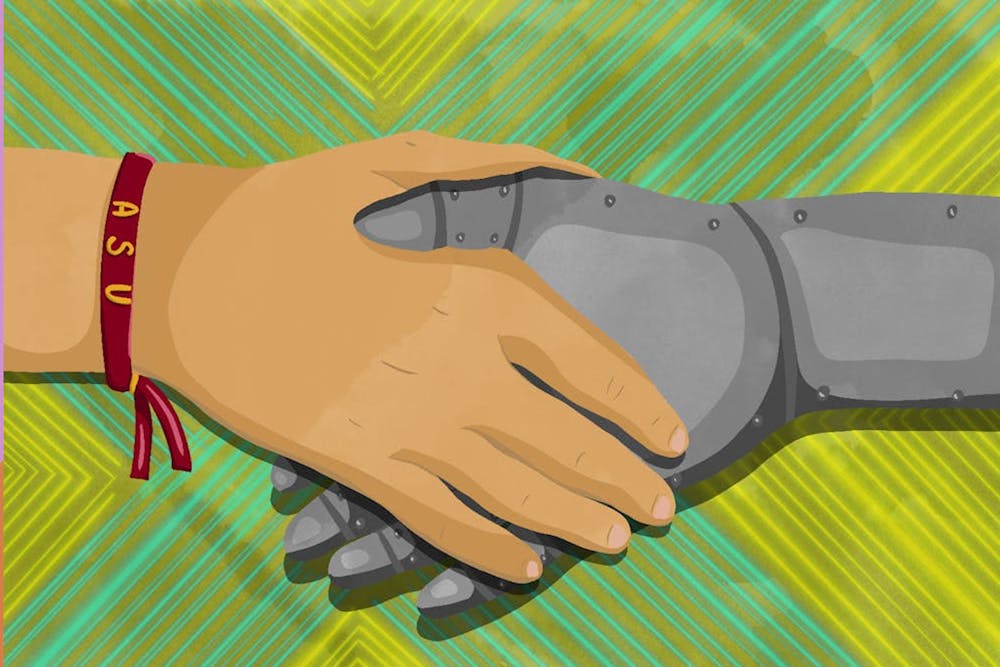There once was a time when the world was connected as one — when it used to be Pangaea. Today, the world is being divided again, not by plate tectonics, but by a digital divide that leaves those without internet access behind.
"(About) 3 billion people in the world currently do not have access to basic tools such as internet connectivity," said Bea Rodriguez-Fransen, co-founder and director of ASU's Next Lab. "We are concerned about the widening digital divide, especially with the introduction of AI in education."
With this in mind, a collaboration between Next Lab and the ASU SolarSPELL Initiative began back in the fall, when a student researcher who worked at Next Lab came to SolarSPELL with an idea. This led to the labs teaming up to bridge this divide by integrating an offline, open-source AI tool into SolarSPELL's solar-powered digital libraries, now known as EDge AI.
The project is ongoing and preparing for what's to come. The labs are working toward distributing their tool, but in the meantime, they've applied to the ASU Foundation's Moonshot Accelerator — a program that helps ideas scale and reach new audiences.
"Both organizations are all about engaging students in real-world work or work that has a real-world impact," said Laura Hosman, co-founder and director of SolarSPELL.
The product of this collaboration is an AI-powered tool that mimics the experience of a search engine but operates offline.
"This is an offline digital library that, when it turns on, it emits an offline Wi-Fi hotspot. Smartphone, tablet, laptop — you name it — if it has Wi-Fi capabilities, it can use that Wi-Fi to connect directly to the library," Hosman said.
For instance, someone living in a remote village can connect to the SolarSPELL hotspot using an EDge AI device, use it to answer a question of their choice and get a relevant result derived from the library's preloaded content.
"Because it's offline and everything is stored and processed locally in your device, you not only protect your data, but also you're able to upload your own knowledge base," Rodriguez-Fransen said. "This is great for Indigenous groups and marginalized groups that are not centered in higher education."
Rodriguez-Fransen also said overall, the team is motivated by making technology more inclusive, equitable and accessible.
"This project made me appreciate the potential of tiny distilled AI models," Hrushikesh Milind Pandit, a recent graduate with a master's degree in computer science and Next Lab Studio associate, said in a written statement. "While low-powered and offline AI may not show the same capabilities, they can do one thing really well — like education — and we've gotten promising results."
However, Pandit shared that one of the biggest challenges the EDge AI team faced was ensuring the AI could respond rapidly on small, low-cost devices. Pandit said the team brought the AI's response time down from about two minutes to about 30 seconds "by doing a lot of tradeoffs, and choosing a smaller distilled model."
"It's conceivable that Edge AI will soon teach analytical subjects like mathematics and aid in solving complex problems, becoming a more capable offline AI system in the coming years," wrote Pandit.
Edited by Katrina Michalak, Sophia Braccio and Pippa Fung.
Reach the reporter at mmart533@asu.edu.
Like The State Press on Facebook and follow @statepress on X.
MJ is a senior reporter. She previously worked as a part-time reporter for Sci-Tech.




